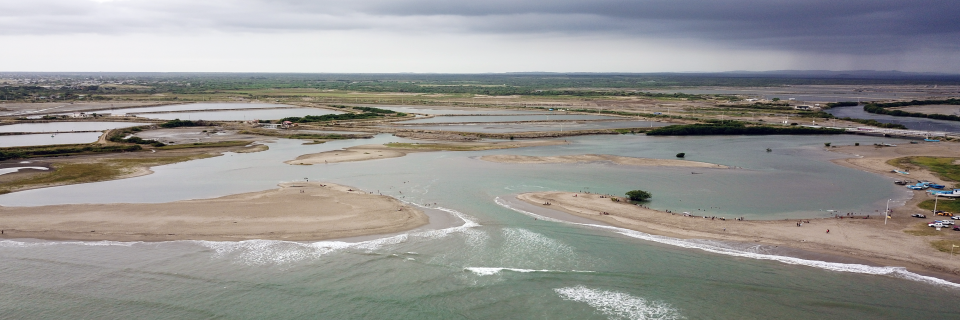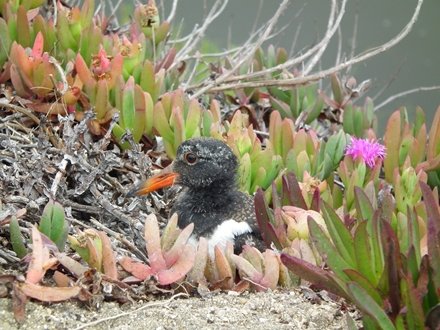Wetlands Project Competition
The foundation Manfred-Hermsen-Stiftung, coordinating partner of the Latin American Coastal Wetlands Initiative, launched the third project idea competition on 02. February, 2023. The goal of this competition is to support local organizations in the implementation of the recently updated Action Plan for Wetlands Conservation on the Arid-Semiarid Pacific Coast of the South American Pacific, fostering collaboration between civil society organizations, academic institutions and decision makers in Chile, Peru and Ecuador.
2. February 2024: World Wetlands Day 2024 - New video about the projects of the third Idea Competition
The 9 Winning Projects of the third Project Competition
Environmental Education and Dialogues with Residents and Key Stakeholders of the Jambelí Canal, Gulf of Guayaquil, Phase II – “Aves y Conservación”, Ecuador
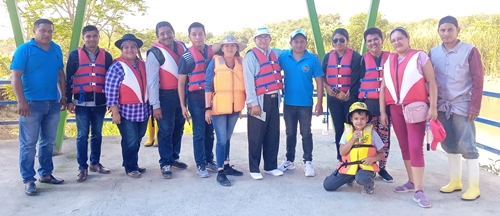
This project focuses on raising the awareness of the local community about the diverse ecosystem services provided by mangroves and on fighting the pollution of the coastal wetlands Naranjal and Balao coastal wetlands, which play a vital role for migratory birds.
Through practical measures to reduce, reuse, and recycle plastics, along with environmental education activities tailored to different target groups, the project aims to trigger a change in the mindset and habits of the local population. In parallel, the management plan for the mangrove forests will be updated and hence a sustainable management of the mangroves and coastal wetlands promoted.
Living Mangroves in the Valdivia Commune - CONMAR, Ecuador
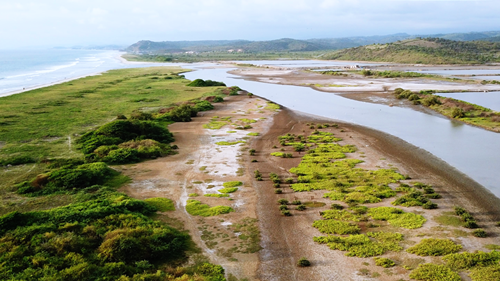
The project aims at the protection of coastal wetlands in the province of Santa Elena, particularly the estuary of the Valdivia River, through a cooperative approach involving local schools, artists, and community organizations.
There are diverse activities included, such as theoretical and practical workshops conducted in schools, as well as field trips to provide first-hand experience and study the geomorphological evolution of the wetland. Wall paintings are going to be created with local artists and community members, expressing the socio-cultural value of the wetlands and creating an additional attraction for ecotourism. Pursuing a participatory approach, the project team works hand in hand with local organizations and the community.
Feast in the Wetland: Trophic Ecology as a Tool for Awareness on Coastal Wetlands - CORBIDI, Peru
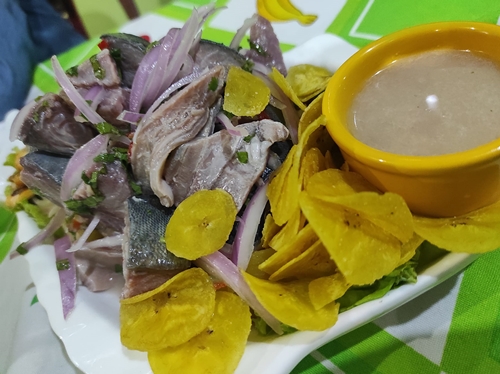
This project is taking place in two coastal wetlands that are recognized for their biodiversity and designation as Ramsar sites: the Pantanos de Villa in Lima and the mangroves of San Pedro de Vice in Piura. The project team is conducting research on the shorebirds' diet in these wetlands, aiming to gather knowledge about food chains and also the food supply for both birds and humans.
Conducting field and laboratory research, the food sources of the birds are being investigated, analyzing stomach contents and observing their feeding behavior. Through workshops and campaigns, awareness is being raised on the significance of wetlands as a vital food source and a connection between the birds' diet and the Peruvian food culture established. In this way the project strengthens the cultural identification and appreciation towards these valuable ecosystems.
Wings and good Winds! Knowledge Management and Promotion of Research for Biodiversity Conservation in the Coastal Wetlands of Pisco and San Andrés, Ica - GAP, Peru
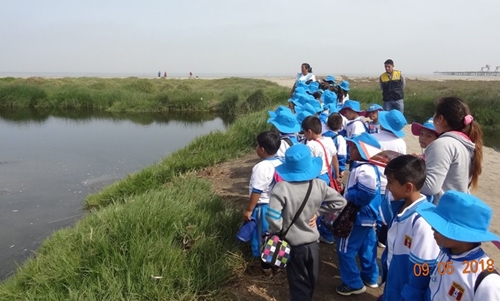
Teachers and students from six schools in the project´s region are being educated on the biodiversity of their local wetlands. They receive training on the use of online platforms like the 'Atlas de Humedales Costeros' as a tool for citizen science and 'iNaturalist' to identify and monitor flora and fauna.
On the basis of this trainings, monthly bird counts are being conducted along the coasts of Pisco and San Andrés, gathering data on their seasonal variations and the conservation status of the area. Through 18 environmental education workshops and field excursions, an additional 50 teachers and 900 students in the region are being involved.
Biodiversity Research in Peruvian Coastal Wetlands – Universidad Científica del Sur, Peru
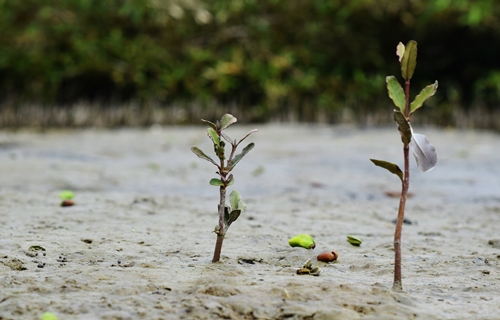
The project closes information gaps on coastal wetlands along the Peruvian coast, looking at those wetlands that have only scarcely been studied so far and generating a database that contributes to decision-making in policy and research.
In the scope of investigatory field trips, focus is placed on data collection of vascular plant communities and avifauna. With the aid of rapid assessment and sampling methodologies, information for scientific publications and for the completion of the database of the 'Atlas de Humedales Costeros' is being collected.
News update
Biocultural Pictograms for Information Boards in Coastal Wetland of Ecuador, Peru, and Chile – Aves del Viento.
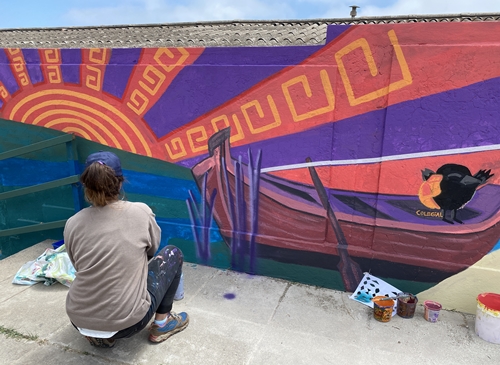
Multiple organizations from Chile, Ecuador, and Peru are collaborating to create an open-access catalogue of biocultural pictograms that will serve the visual communication of important information for the protection of coastal wetlands and dissemination of knowledge.
The pictograms are designed for their employment across the entire chain of coastal wetlands within the initiative's geographic scope, incorporating both ecosystem and cultural aspects. By working closely with the target groups, the socio-ecological context is being taken into account to ensure an effective communication.
Participatory Management of the El Culebron Wetland Basin - CEAZA, Chile
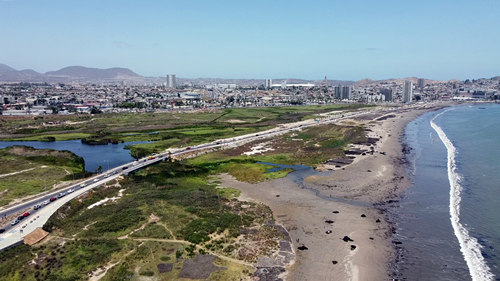
In the Coquimbo region, the protection and sustainable use of the El Culebrón wetland and its catchment area are being promoted through the participatory development and implementation of an interdisciplinary action plan.
The measures entail the creation of a “green classroom” for educational centres and visitors, including a nature trail and information boards in the wetland. In the scope of a participatory monitoring there is data on flora and fauna being collected and indicators for anthropogenic influences on the ecosystem monitored. The results are being used in the development of the action plan.
Integrated Management for the Protection of Valparaiso’s Coastal Wetlands Network - FIPaNCu, Chile
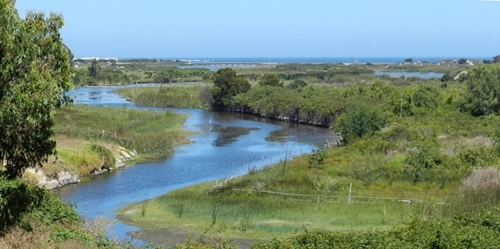
Through research, environmental education, and the dissemination of scientific knowledge, coastal wetland conservation and knowledge building are being promoted in the Valparaiso region to foster an appreciation for, and sustainable use of, the coastal wetlands.
Among the diverse activities, the use of the environmentally friendly DNA sampling technique to record biodiversity can be highlighted. This method enables data collection avoiding disturbance of habitats and organisms. Through workshops with local community members, volunteers are trained to monitor wetlands and identify threats, encouraging active citizen participation and creating a sense of responsibility for wetland conservation.
Climate and Socio-Ecological Actions for Coastal Municipalities: Integrative Solutions for Wetlands and Shorebirds – ROC, Chile
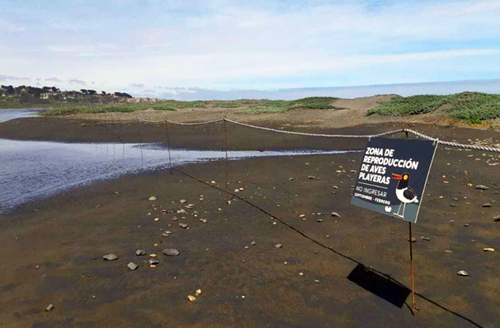 Supporting the agenda of coastal municipalities on climate and environment, a training program for municipal representatives in at least five regions of Chile is being developed. The program focuses on creating integrative and site-specific solutions to protecting coastal wetlands and shorebirds.
Supporting the agenda of coastal municipalities on climate and environment, a training program for municipal representatives in at least five regions of Chile is being developed. The program focuses on creating integrative and site-specific solutions to protecting coastal wetlands and shorebirds.
In collaboration with community administrations, workshops and trainings are being offered where existing gaps and demands are being identified and solutions drafted. In addition, pilot actions will be developed in the Cartagena wetland for testing and demonstration purpose. Furthermore, at least one face-to-face event will be organized for the exchange of experiences among all program participants.
Further information
The first version of the action plan was developed 2017-2018 in collaboration with experts from universities, authorities, and environmental organizations of the region. Based on this plan, we launched a competition in 2019 and 2021, funding a total of 20 projects that were carried out by local organizations. The experiences gained were incorporated into the update of the action plan and the new call for proposals. This time, 3 NGOs from each country receive funding for their projects for conservation of the coastal wetlands.
Coastal Wetlands Initiative: www.humedalescosteros.org

Here you can learn more about the winners of the first and second competition.
